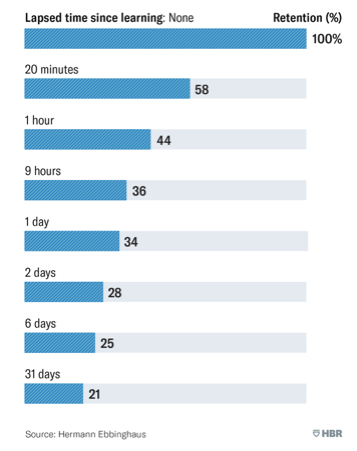Just when you thought you’d heard about every side effect of COVID-19, there’s yet another that could affect us for years to come: The hindered development of Emotional Intelligence (EQ) among our next wave of leaders – courtesy of Work From Home (WFH).
Remote working certainly has its benefits – freedom, extra sleep, a chance to spend more time with the kids…. But for millenials, it can be a nightmare in learning about office protocol.
In fact, many emerge from university with an impressive array of academic qualifications, confident in their quest to impress and determined to raise to the top as shining young stars. Until they discover that business isn’t all about IQ.
EQ v’s IQ: separate quotas, but highly complimentary
In Harvard Business Review’s article, How Emotional Intelligence Became a Leadership Skill (April 28, 2015), Andrea Ovans points out that: “It took almost a decade after the term was coined for Rutgers psychologist Daniel Goleman to establish the importance of emotional intelligence to business leadership. In 1998, in what has become one of HBR’s most enduring articles, “What Makes a Leader,” he states unequivocally: The most effective leaders are all alike in one crucial way: they all have a high degree of what has come to be known as emotional intelligence. It’s not that IQ and technical skills are irrelevant. They do matter, but…they are the entry-level requirements for executive positions. My research, along with other recent studies, clearly shows that emotional intelligence is the sine qua non of leadership. Without it, a person can have the best training in the world, an incisive, analytical mind, and an endless supply of smart ideas, but he still won’t make a great Leader. The article then goes on to introduce five components of emotional intelligence that allow individuals to recognize, connect with, and learn from their own and other people’s mental states:- Self-awareness
- Self-regulation
- Motivation (defined as “a passion for work that goes beyond money and status”)
- Empathy for others
- Social skills, such as proficiency in managing relationships and building networks
Good influence goes a long way
We all know when we’re in the company of great leaders; it’s how they act, what they say (and don’t say), their listening ability, self-awareness, ability to reason, how they connect with people and their air of power; all characteristics that seem innate. Yet, these people didn’t get to this point easily. It came with lots of experience and guidance from others. The truth is, it takes regular exposure to impressive people to change the thinking and actions of others. The result is an improvement in people’s ability to read the room, hone interpersonal interactions, become self-aware and fine tune their political “filter”. These skills are 100% learnt through osmosis. For career progression these “soft skills” far outweigh technical ability. That’s because “hard skills” can be learnt relatively quickly and passed from one person to another with the right training. What’s more, there’s rarely any shortage of candidates who excel at the required subject matter.Why learning through direct exposure trumps formal learning
There’s no shortage of reputable studies that point out the shortfalls of formal learning. Whilst formal education is important, it’s well known that the lessons need to be applied frequently to reinforce memory retention. The same goes for leadership and EQ development. Indeed, in an article titled “Where Companies go Wrong with Learning and Development” (Steve Glaveski, 2019), it is estimated that we forget around 75% of what we learn in just six days. This follows what German psychologist Hermann Ebbinghaus established in the late 19th Century – culminating in his theory, “The Forgetting Curve”, which outlines retention rates for the average individual:The Forgetting Curve

Conversely, with practice through spaced repetition, we can remember around 80% of what we learn after 60 days – which is why the subconscious learn/apply/feedback loop that occurs within office settings can be so effective.
It’s a learning method that’s echoed in the McKinsey Quarterly article “Getting more from your training programs” (2010), in which Aaron De Smet argues that senior leaders need to be directly involved with ensuring their team members apply what they have learnt in their modules – and approach their learning with the right mindset.
We believe, as a leader, there’s no better way to involve oneself than by demonstrating the EQ and interpersonal skills you want emulated throughout the organisation.
Learning what’s acceptable and what isn’t
There’s an old saying: “I can tell what kind of person they are by the company they keep.” This may sound like an overly judgmental statement, but a lot of truth can be extracted from it. Bad social skills can be just as easily learnt as good ones. If ambitious recruits surround themselves with mates behaving badly at home, they can pick up the habits and influence your team. The result can be a progressive change in culture and company reputation – especially where a lot of camaraderie occurs, such as in sales teams. In fact, it’s never been more important to expose new people to established office culture as much as possible.Finding solutions in the new work order
The roll of the office is changing. Many companies have transitioned to 100% remote staffing, while others have adopted a hybrid model of only two or three days in the office per week. To attract good talent, these options are now hard to avoid. The question is, how can we take the new working models and ensure EQ development doesn’t go out the cyber window? Quite simply: The office needs to be a destination. Considering that human beings are social creatures, this shouldn’t be a difficult task. Bringing people together could include:- Social meetings – such as regular lunches and presentations
- After work drinks
- Breakfast events – such as seminars and corporate addresses
- Work In Progress meetings where teams provide input
- Updates from the leadership team – with social opportunities afterwards
- Mentoring and buddy programs
- Gym/yoga/meditation memberships or events in or near the office
- Bring the kids/pets in days – if space permits, a hired carer
- Mental health days
- Seminars/programs specifically developed to strengthen EQ
- Online opportunities for those who can’t join in person


